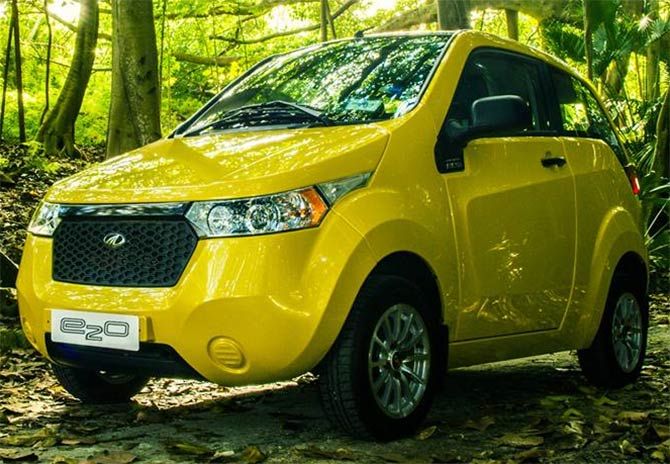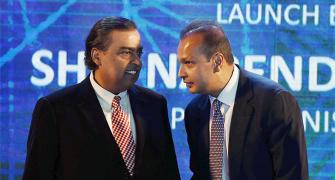India Inc is facing threat from non-traditional sources, notes Shailesh Dobhal.
 The market for cars and utility vehicles has been in positive territory for some time now but can hardly be termed robust, given still low levels of penetration compared to similar markets in other parts of the world.
The market for cars and utility vehicles has been in positive territory for some time now but can hardly be termed robust, given still low levels of penetration compared to similar markets in other parts of the world.
Costly finance, subdued rural demand and slower-than-government-statistics-would-make-us-believe economic growth have been touted as likely culprits by motown for some time now.
But listen to what Anand Mahindra, chief of one of India's leading automakers Mahindra & Mahindra, had to say recently on dwindling volumes: "The age of access is here. There is going to be an increasing number of people who would want access to transportation and not own an object of transportation… Today, one who lives in a world where the Olas and Ubers of the world are stating that a person doesn't need to own a car, for them transportation is commodity. It changes the way one sells."
Mr Mahindra is right, of course, but he is a rare industry chief in India who has articulated so succinctly what many of his peers across other industries may be feeling, but are afraid or shy of admitting in public: competition - even existential threat - from non-traditional sources.
Or changed government policy or consumer behaviour, like urban India's car-free days that is slowing rolling out across cities.
No one is immune to this threat. Even the mightiest of global firms, like General Electric, is witnessing competition from the IBMs and Googles of the world for a pie of the industrial Big Data business of software, services and analytics, prompting its chief Jeffrey Immelt to push ahead to make its $ 6-billion software business among the top 10 globally in the next five years.
Law firms in India are discovering that the big four of consulting -PricewaterhouseCoopers, EY, Deloitte and KPMG - are encroaching into their space by allegedly offering legal services and even poaching their flock, even as the big four see law firms get even by way of offering forensic and fraud investigation services, a core area for consultants.
And if you're a bank chief, what do you make of private telecom operators seeking the government's nod to raise funds from cheap sources like tax-free bonds?
Well, to me its is as simple as fund-starved telcos trying to cut banks out of a huge Rs 2-lakh-crore-plus market, the money they need to push for 100 per cent penetration of telephony in rural areas and deep broadband access in urban areas in the next five years.
Why, as a banker I would be paranoid as taxi hailing start-up Ola recently raised over Rs 5,000 crore from venture capitalists and promptly announced it was using that money to finance car purchase by drivers for its network.
Almost a billion dollars of the car finance market for banks vanished overnight!
And let's not think of the havoc the new kids on the block -payment banks - can wreak on the business models of traditional banks.
Well, it's not all doom for existing businesses as long as they're willing to change and adapt. Let's return to Mr Mahindra again for answers.
"You (can) sell to Ola and Uber and you still want to connect with consumers. And I see another world, which is not devoid of people who want to own a car. I have no doubt that it is going to affect the world and it is going to affect the volumes in the auto industry. Young people very rarely need to own anything."
Though Mr Mahindra didn't say it, what he essentially meant is that for automakers the taxi-apps or the sharing economy is a frenemy - that oxymoron term for something or someone being a friend and an enemy at the same time.
And as he said, it would change the way carmakers sell their products, and to whom.
Already the smart ones amongst bankers are tying up with the winners of payments banks licences - the State Bank of India with Reliance Industries and Kotak Mahindra Bank with Bharti Airtel.
Mr Mahindra's next moves on how he plans to deal with the "age of access" will be keenly watched.










